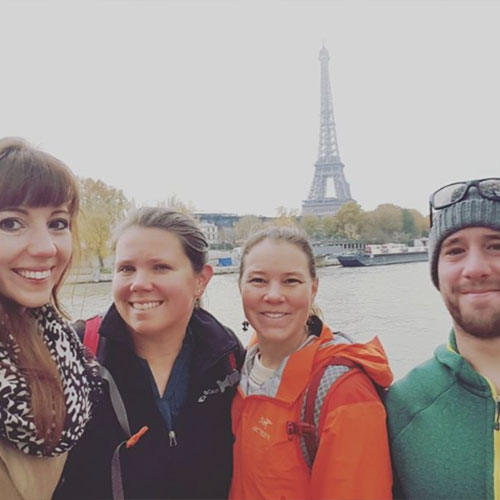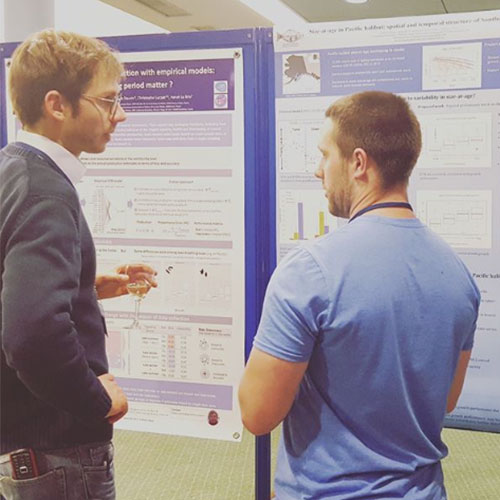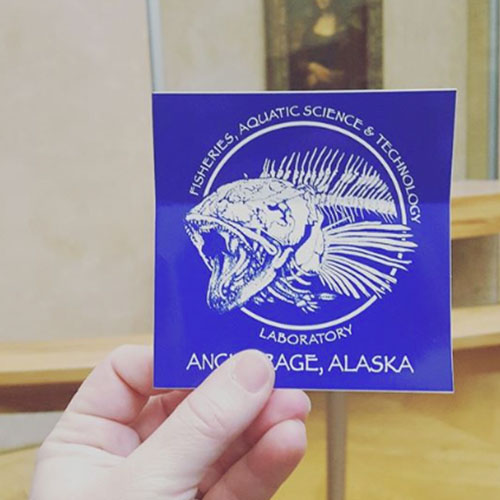
In November 2017, Fisheries, Aquatic Science, and Technology (FAST) Laboratory members Dr. Nathan Wolf, Sarah Webster, Anita Kroska, Sioned Sitziewicz, and Brian Ritchie travelled to Saint Malo— a historic fortified city on the northern coast of France— to present their work on Pacific halibut at the International Flatfish Symposium. Also in attendance were FAST Lab affiliate faculty members Dr. Josep Planas from the International Pacific Halibut Commission and Dr. Craig Rose a retired National Oceanic and Atmospheric Administration researcher who now runs FishNext Research. The Symposium, which is held every three years, was attended by scientist from over 16 countries including Canada, Japan, Belgium, France, Spain, and Norway.

In addition to the fascinating presentations, highlights of the conference included a visit to the abbey and city-island of Mont Saint Michel, an UNESCO World Heritage Site; exploring shops and restaurants along the cobble streets of historic Saint Malo; donning iconic Bretagne striped shirts; delighting in local cheese and pastries; and walking the high city ramparts to enjoy views of sand and sea.

